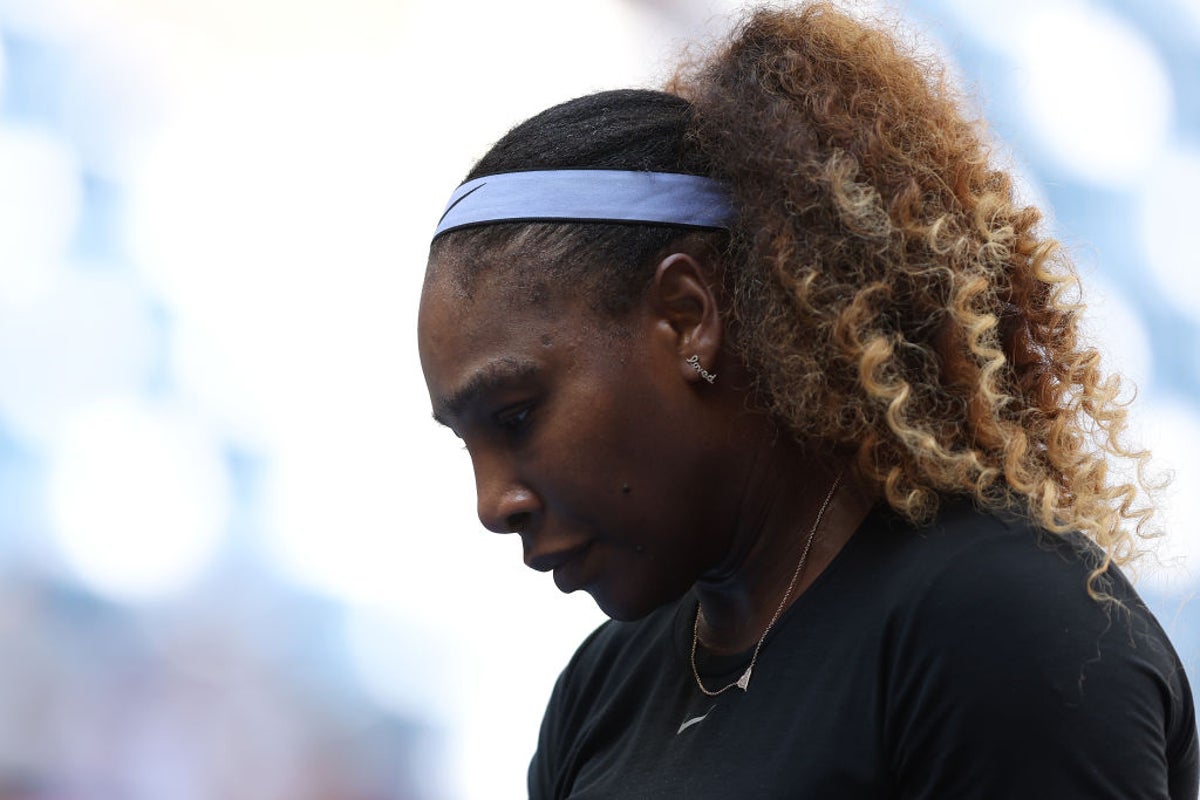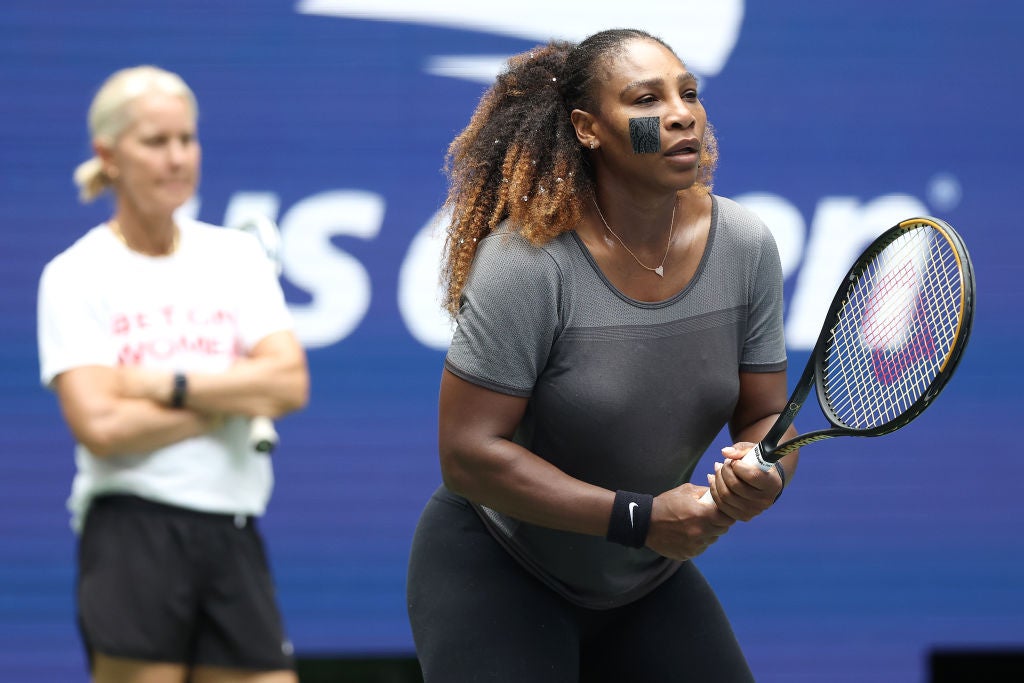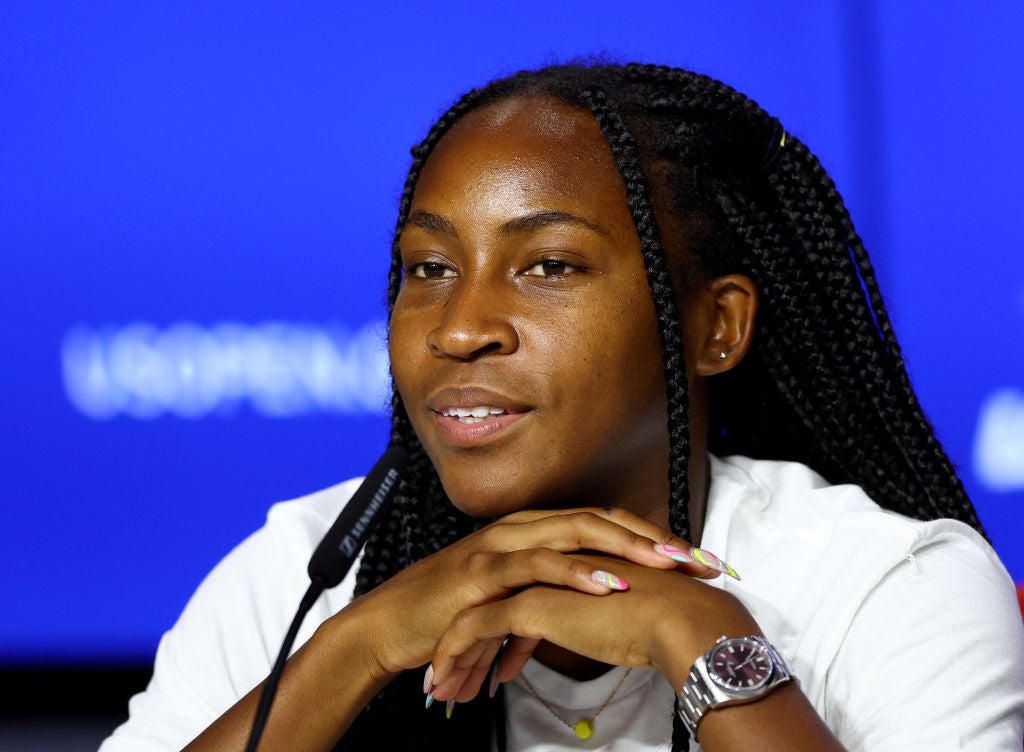
As the US Open prepares to say goodbye to Serena Williams, Naomi Osaka was succinct in summing up why whatever tributes and send-offs that are planned will still not be nearly enough. “You can’t even describe it in words," Osaka said when asked about the legacy left behind by one of sport’s greatest ever figures, ahead of what is expected to be Williams’s final tournament in New York this week.
It is true – how can you? Especially if, like for the 24-year-old Osaka, the image of Williams and her sister Venus being at the top of tennis is all you have known. Perhaps, then, the best way to view the transformational impact of Williams, on the sport and on and off the court, is through the generation of players who have followed in her lead.
After all, the majority of those in the women’s draw in New York were born after the 40-year-old made her professional debut in 1995. Four of the top 20 players in the world were born after the first of her 23 grand slam singles titles, at the US Open in 1999. For Osaka, as well as the likes of Coco Gauff, Iga Swiatek and Leylah Fernandez, they grew up watching a sport that was dominated by a Black woman, who played with power and aggression.
There was no such example a generation earlier. Williams was raised in Compton, California, and taught how to play tennis by her father Richard – in a story that is now quite literally a Hollywood movie. To see it, she and Venus had to be it. To that end, and by breaking through racial barriers, Williams has shaped a sport and her impact can be seen in the diversity in the game now.

"Growing up, I never thought that I was different because the number one in the world was somebody who looked like me,” said the 18-year-old Gauff, who is also the embodiment of what Fernandez means when last year’s US Open finalist spoke of Williams setting out a path for players to “voice their thoughts and fight for what they believe in”.
Gauff has lived by those words and used her platform as one of the best players in the world to speak out against issues such as gun violence and Roe vs Wade. “Sometimes being a woman, a Black woman in the world, you kind of settle for less. I feel like Serena taught me that. From watching her, she never settled for less. I can’t remember a moment in her career or life that she settled for less.”
“She introduced people that have never heard of tennis into the sport,” Osaka continued.
“If you ask 15 girls why they started playing tennis, maybe all of them say it’s because of her,” added Madison Keys.
You don’t get to choose the legacy you leave behind, few get to see it play out, but Williams will have the chance to watch and reflect on both at Flushing Meadows.
“I’d like to think that thanks to opportunities afforded to me, women athletes feel that they can be themselves on the court,” Williams wrote in the first-person essay for Vogue that announced her decision to “evolve” away from tennis. “They can play with aggression and pump their fists. They can be strong yet beautiful. They can wear what they want and say what they want and kick butt and be proud of it all.”

Her playing career will have one final chapter. Williams will play tonight against Danka Kovinic in the first round of the US Open. There have been rumours of a ceremony to honour Williams taking place afterwards – regardless of the result. Williams has stated her opposition – “I’m not looking for some ceremonial, final on-court moment,” she said – but she doesn’t really have a choice.
Meanwhile, the prospect of bowing out with a 24th grand slam remains, as she described, a “fantasy” given her lack of match practice over the past year. Williams has been on court more than in the lead-up to Wimbledon, when she was knocked out in the first round by the unknown Harmony Tan. There is a chance that happens again here against the world No 80 Kovinic, not that the result would be remembered, but it is also not out of the realms of possibility that a win would be followed by a match against the very beatable second seed Anett Kontaveit. From there, an open draw would stretch invitingly ahead.
Overall this looks to be another US Open where you should expect the unexpected, following on from the greatest example of all and Emma Raducanu’s title last September. The world No 1 Swiatek is missing the sheen of inevitability that carried her to titles in Miami and Indian Wells, starting the 37-match win run that continued into Wimbledon. There are perhaps more contenders between ranks 11 to 30 than there are in the top 10 – Elena Rybakina, who won Wimbledon seeded 17th, is testament to that.
It will all fade in significance, though, on the night Williams departs the grand slam arena for what is expected to be the final time, a legacy secured, and with a new generation to carry it on.







